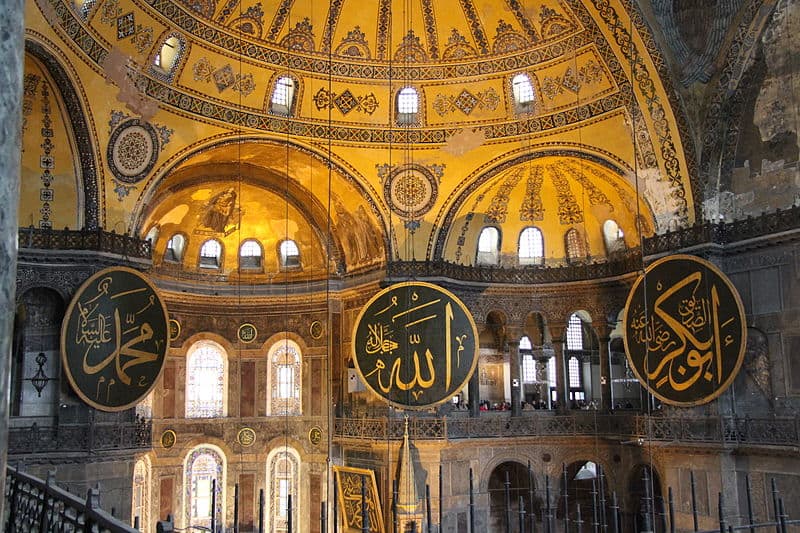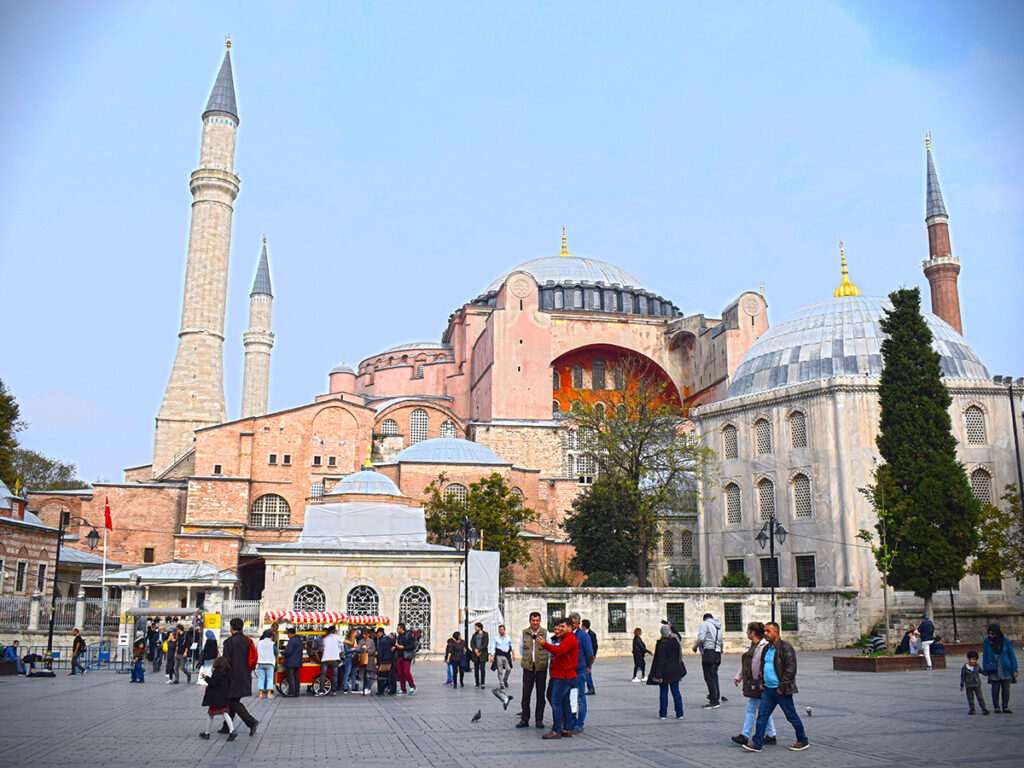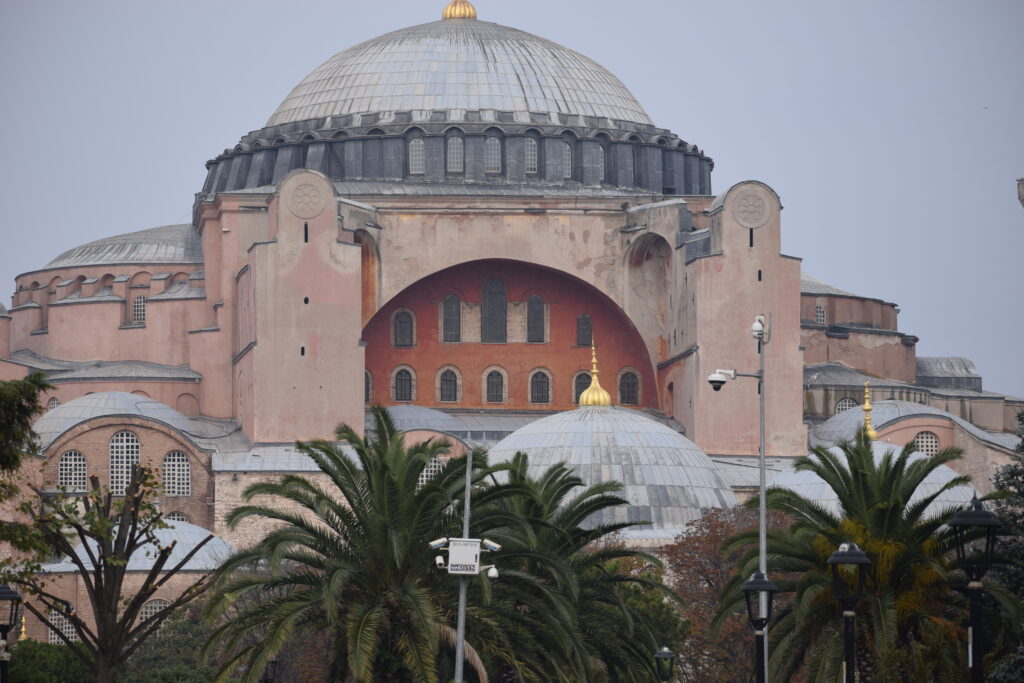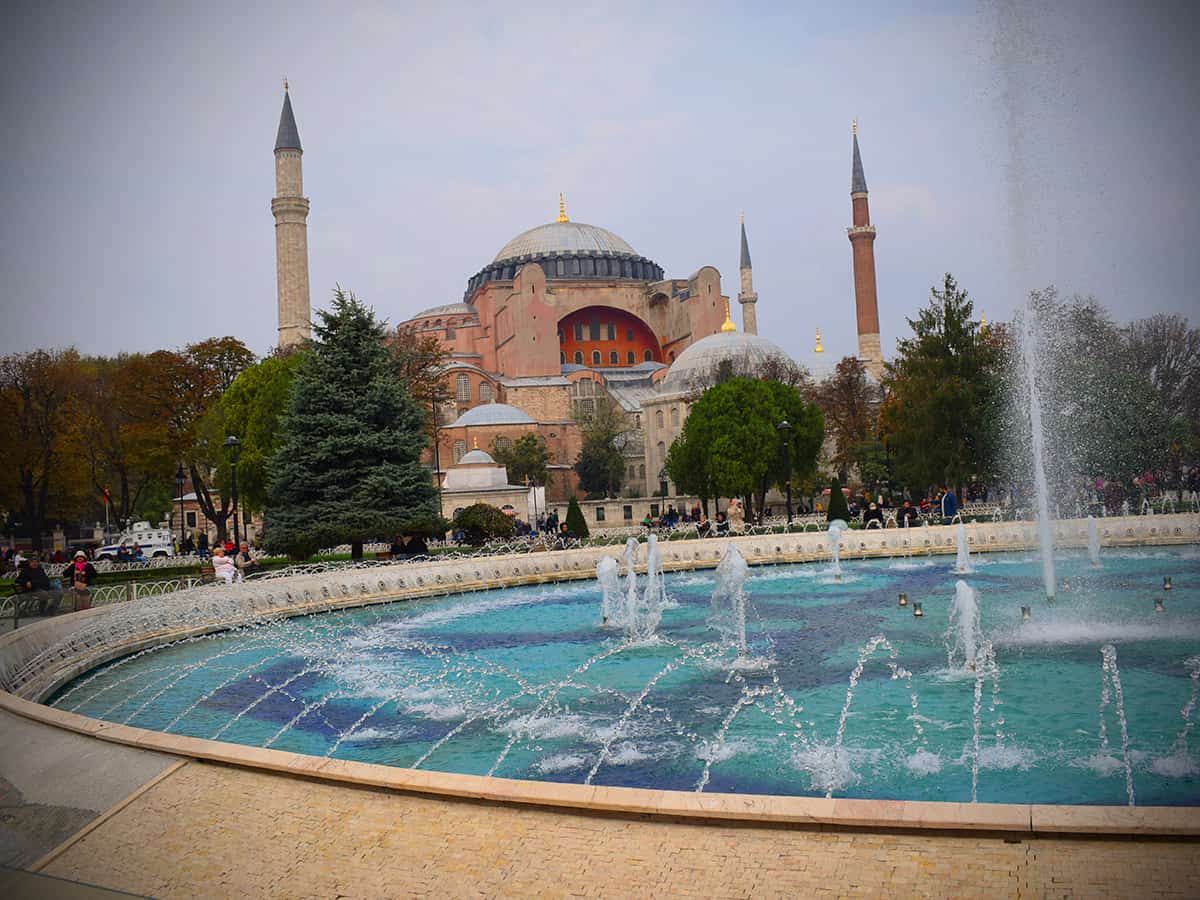M. A. Siraj
The reversion of Hagia Sophia to the Religious Affairs Directorate to be used as a mosque nearly 85 years after it was turned into a museum, signals a dangerous watershed in Turkey’s advance towards pan-Turkism. Islam though may not be the central axis of this revivalist movement, restoration of iconic cultural symbols certainly finds a prominent place in the scheme of things of the Erdogan Government and his AKP Party with roots in Islamist ideology is pursuing.

Hagia Sophia is the most potent symbol of Ottoman conquest of Constantinople, once the epicenter of the Christian Byzantine Empire. Originally built between 532 and 537 AD on the orders of Byzantine emperor Justinian as a cathedral, it was one of the roomiest of the spaces reserved for worship across the world. It was turned into a mosque with the city falling to the invading forces of Sultan Mehmet II in 1453 from when the city was rechristened Istanbul and became the capital of Ottoman Empire. Sultan performed first Friday congregational prayers on June 1, 1453 after a niche was added slightly reconfiguring the interior praying space towards Makkah. The fresco images of Jesus and Mary and Byzantine emperors in the domes and walls were covered with white plaster as Islamic prayers would not be valid in presence of images. Turkey turned into a nation-state in 1923 under nationalist revolutionary leader Mustafa Kemal Pasha who through a cabinet decision turned the mosque into a museum in 1933. The plaster was removed from the images and the space was secularized. In its latest turn, Hagia Sophia will revert to a mosque. President Erdogan has signed a decree to revoke the 1933 decision to reclassify it into a museum. The decree follows annulment of the 1933 conversion of the mosque into a museum.
Risky path
Correcting history’s wrongs is a risky path that Turkey has chosen to tread. It is long—almost a century—since Turkey emerged as the first nation-state among the Muslim countries. Nationalist sentiments shaped its forward trajectory. Islam, of course, took a backseat, but Muslim majority ensured that its ‘Muslimness’ would be the dominant cultural flavor. Having been backstabbed by the Arabs (remember the Hejaz Railway built by Turks with German technical expertise was destroyed by Arabs inspired by the British spy Lawrence of Arabia even while the British were laying the railroads elsewhere in the colonies) the Turks took drastic steps to unhinge themselves from backward and unreliable Arabs. Yes, they went too far in introducing azan in Turkish. But adoption of Roman alphabets helped them import technology and advanced ideas of democracy, secularism, human rights, gender equality and nationalism from the West. Thanks to Ataturk’s reforms, Turkey is today modern in all senses of the word. Its ship-building technology, textiles, construction companies and automotive factories turn out world class products. Some of its universities figure among the 200 best universities of the annual TLS ranking. The Gulf Arabs are still dependent on extractive economy—the oil-wells being the mainstay—and are modern only in the consumerist sense. They are still beholden to the global cop to defend themselves against the onslaught of the tiny Israel. Religion, the opium of the masses, is still the major ploy to keep the people in awe of the otherwise discredited, oppressive, corrupt and corpulent sultans, emirs, khalifas and the custodian of holy Harams.
Undo the prestige
But Erdogan and his party are hell-bent upon undoing the prestige Turkey has gained during the last one century by removing some of the grotesque maladies of history. Hagia Sophia, having been turned into a museum, with plasters from those images of Jesus and Mary removed, was one huge step towards its acceptance in the civilized world. Even Spain was yet to emulate that example where the famous Cordoba Mosque remains a Church. The four minarets still stood as reminders of the change of status the edifice underwent. It was a happy blend of Christian-Muslim influences.

Turkey is not short of mosques. After all, the huge and equally impressively domed Sultan Ahmed Mosque sits just facing it with a public square loaded with tourists, separating them. The Christendom was happy that Turkey was returning to it its exquisite gift, by restoring its pristine character and format. No matter if space was not utilized for prayers or sermons of the laity. But the museum was not less than a halfway compensation for an architectural jewel lost. Great many visitors from the surrounding Greek Orthodox nations have been making a beeline to Istanbul, just to have a glimpse of the grandeur the Hagia Sophia exuded.
Umar’s example
Turkey now risks losing that cultural conduit by turning it into a place of worship exclusively for Muslims again. Not to be missed is the point that after all, Hagia Sophia was not originally built as a mosque. Its walls and ceilings still speak of its Christian origin. Islam prohibits usurpation of others’ places of worship. One is reminded of second caliph Hazrath Umar refusing to pray inside the Holy Sepulchre of Jerusalem even when he was invited by the Governor Sophronious to pray inside the holy shrine. He, as the conqueror of Jerusalem, could have easily fallen victim to the temptation. But strong-minded that he was, he refused. His plea was that he apprehended that future generations would wrest the sepulchre from the Christians claiming it for Islam.

Sacrificing bonhomie
Nations today do not gain ascendancy among the comity of nation by supplanting crosses by crescents or the vice versa. The rules of the game have changed. Nations empower themselves with knowledge; their economic worth; the scientific pool of talent; by high ranking on HDI; good ratings of Amnesty and Transparency Internationals; the number of visitors, pilgrims and students they attract year round; the protection and equality they offer to the women, disabled and the minorities. It will be a sad day if modern Turkey looks for rising in the estimation of the world by repeating the injustices of the past and ignoring the headway it gained during this last one century. It will be no gain for Islam and Muslims, if the bonhomie and goodwill with a vast section of humanity is sacrificed at the altar of a place of worship.
M.A. Siraj is a senior journalist based in Bengaluru

